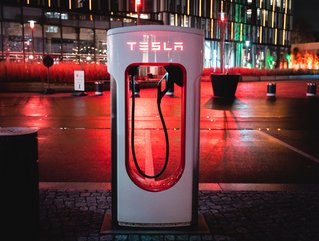Tesla procurement to ride the wave of electrified EV sales

The electrified car leader, Tesla announced a positive result at the end of Q4 2022.
The company has redeemed its ability to meet targets, which resulted in a reported US$24.3bn in revenue for the final quarter of the year. This amounts to a 30% increase in comparison to the same period of the previous year—Tesla scoring itself a record.
As a result of this success, Tesla CEO Elon Musk has declared further growth in sales is to be expected in 2023, citing the potential for 1.8 million sales this year.
As many companies have experienced, Tesla has experienced the after effects of COVID-19, which played havoc with the supply chain. However, the company seems to be bouncing back having navigated supply chain issues and, by the end of 2022, had delivered its first Semi trucks to the consumer goods corporation—Pepsi.
This announcement of growth in Tesla production and projected sales has major implications for the procurement of parts - especially relating to its batteries - which some analysts have described as unsustainable.
EV sales rise, battery manufacturing must increase
Despite the increase in Tesla’s sales, the company is having to make way for other carmakers entering the EV space, such as General Motors and Ford—from the traditional automotive side—as well as Rivian, Lucid, and Chinese competitors BYD and Nio.
So with the market increasing in competition, what will Tesla focus on this year alongside its order numbers?
The first is cost, driving down production costs of its passenger cars will provide the company a great financial gain when delivering 1.8 million of them to the market. Responsible for a portion of these sales will be the Tesla Cybertruck—the long-awaited electric pickup truck that will put the company in the utility vehicle category.
Much of the cost reduction in the production of these cars will come from Tesla’s plans to make its own batteries and reduce the price of each one to build. Forbes commented yesterday on the company’s plans to invest US$3.6bn into its Nevada plant, which will provide capacity for battery manufacturing and Tesla Semi production.
Is charging infrastructure ready for more EVs?
One of the major challenges faced globally is the lack of adequate EV charging infrastructure to support a growing number of electrified vehicles. The Nevada gigafactory—and others in the company’s repertoire—will provide the batteries, but with charging still on the rise across the globe, will the infrastructure be enough to cater for all new vehicles.
With Tesla’s share of electric car sales amounting to around 17.4% in 2022, other car manufacturers are likely to ramp up their efforts in order to uphold their share of EV business. Despite significant projections for 2023, the Financial Times notes investors are growing increasingly more concerned about the company’s ability to keep up with a fast rate of growth. In 2021, Tesla peaked at its value of US$1.2tn, which is currently at less than half (US$450bn).
For a long time, Tesla has been the company to watch as it brought EVs into the fore, but will Musk’s acquisition of the social platform Twitter turn the CEO’s attention away from his sustainable, automotive endeavours?
- ‘Plan for Better’ J Sainsbury and sustainable procurementSustainable Sourcing
- What is Pepsico’s Sustainable Sourcing Programme?Sustainable Sourcing
- How are Volkswagen rearranging procurement operations?Sustainable Sourcing
- SailPoint: Leveraging procurement to shape the futureProcurement Strategy






